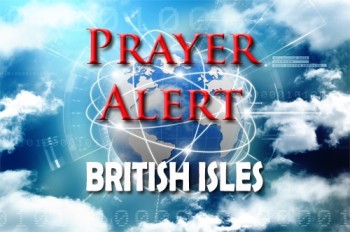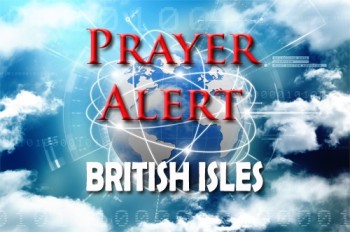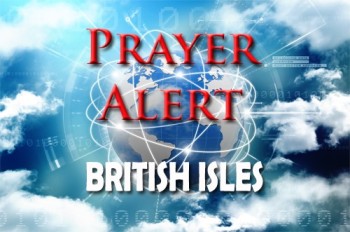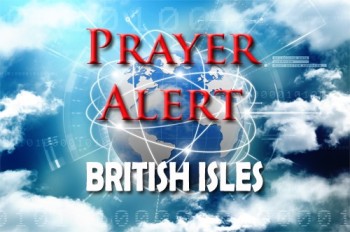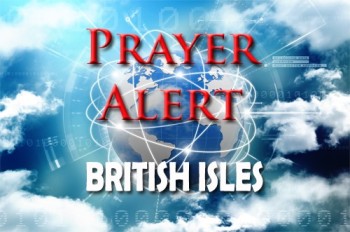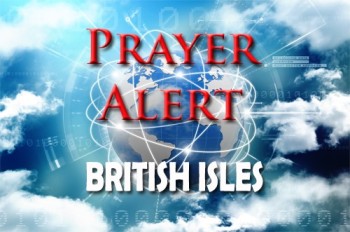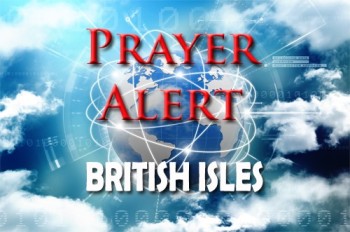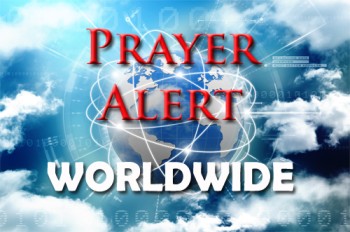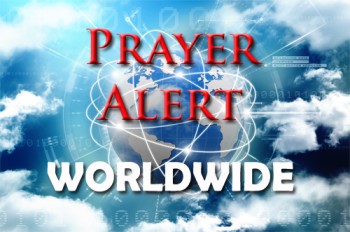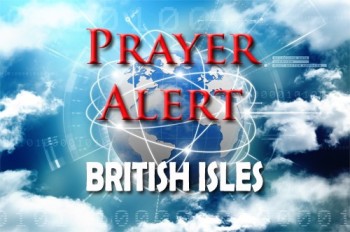Displaying items by tag: healthcare
‘Critical incidents’ at NHS hospitals as winter viruses surge
Six NHS hospital trusts across England have declared critical incidents as winter pressures intensify, driven by rising flu cases, norovirus, Covid, staff sickness, and delayed discharges. Nottingham University Hospitals and Sherwood Forest Hospitals and four others are now on that status, signalling that services are stretched beyond safe capacity. Emergency departments are experiencing unprecedented demand, with some seeing over five hundred patients a day. Hospitals report long corridor waits, cancelled non-urgent procedures, and extreme pressure on frontline staff. NHS leaders say festive gatherings, cold weather, and icy conditions have contributed to a 'bounce back' in winter viruses and related injuries, and flu admissions are rising again after a brief decline. Declaring a critical incident allows trusts to prioritise life-threatening cases, redeploy staff, and restrict visitors to limit infection spread. The NHS continues to urge the public to use alternatives such as NHS 111 and community pharmacies where possible, and to support timely patient discharges.
Scotland: doctors query Swinney’s plan for walk-in health centres
Scottish first minister John Swinney’s plan to launch 15 new GP- and nurse-led walk-in health centres has sparked debate among medical leaders about staffing and feasibility. The proposal aims to ease the ‘8 am rush’ for appointments by offering no-booking consultations from noon to 8 pm, seven days a week, potentially adding a million more appointments annually. However, doctors’ groups, including the Royal College of General Practitioners (RCGP) in Scotland, say they were not consulted and question how the services will be staffed given a declining full-time GP workforce. Although the number of doctors in Scotland has risen slightly since 2015, many now work part-time, and the number of GP practices has fallen by 10%. Health secretary Neil Gray insists Scotland’s record 1,200 GP trainees can help fill gaps, but critics warn that workforce pressures and unclear logistics could limit the scheme’s success. The initiative highlights growing tension between political ambition and the realities of primary care delivery.
Starmer’s NHS plan promises more GPs and local health hubs
Keir Starmer has unveiled an ambitious ten-year plan to transform the NHS by shifting healthcare from hospitals to local communities. Central to the proposal are 200 new 'neighbourhood health centres', offering scans, outpatient services, mental health support, and more - all aimed at reducing hospital demand. Starmer declared the NHS must 'reform or die’, pledging accessible, community-based care under one roof. Health secretary Wes Streeting promised thousands more GPs, reversing current trends favouring hospital consultants, and aims to slash waiting lists while prioritising British doctors for NHS jobs. The plan also includes an enhanced NHS app, AI safety alerts, and a focus on helping patients return to work. However, experts express caution, noting that past governments have announced similar visions without delivering meaningful change. Questions remain over funding, but Starmer insists the plan will 'fundamentally rewire' healthcare and prioritise patient-centred care, especially in deprived areas.
NHS plans more robotic surgeries to speed up treatment times
The NHS is planning a major expansion of robotic-assisted surgery to improve treatment times and patient outcomes. Currently, one in five keyhole surgeries is robot-assisted, but NHS England projects this will rise to 90% by 2035, with procedures increasing from 70,000 annually to around 500,000 over the next decade. Health secretary Wes Streeting, himself a kidney cancer survivor who benefited from robotic surgery, highlighted the potential of such technologies to transform healthcare delivery. Robot-assisted surgery enables greater precision, faster recovery, and shorter hospital stays. Surgeons operate using a console linked to robotic instruments and cameras, with some orthopaedic surgeries already partially automated. NHS leaders stress that embracing innovation, including robotics, AI, and data research, is essential to meet targets like reducing elective waiting times by 2029. John McGrath, chair of the NHSE robotic surgery committee, added that efficient use of robotic surgery could ease system-wide pressure. The initiative aligns with broader efforts to modernise the NHS and deliver faster, more effective care to patients across multiple medical fields.
ME sufferers feel ‘invisible and ignored' as review shows 62% increase in cases
A new NHS review has revealed that an estimated 404,000 people in England suffer from Myalgic Encephalomyelitis (ME), or Chronic Fatigue Syndrome - a 62% increase from previous figures. The condition disproportionately affects middle-aged women, who are six times more likely to be diagnosed than men, and shows stark disparities across regions and ethnic groups. White individuals are nearly five times more likely to be diagnosed, and in many deprived areas, ME is underdiagnosed or entirely unrecorded. The condition, characterised by post-exertional malaise, brain fog, pain, and exhaustion, has long been misunderstood and underfunded. A national review was prompted by the 2021 death of 27-year-old Maeve Boothby O’Neill, who was left malnourished and unable to speak after years of medical neglect. Her case led to a coroner's unprecedented 'prevention of future deaths' report, demanding urgent reforms in ME care and research. Medical experts and charities are calling for improved training, diagnostic tools, and funding to address this silent health crisis. The NHS, NICE, and government-backed bodies are now reassessing care standards, research, and education for ME across the UK.
700,000 women to be screened for cancer using AI technology
Hundreds of thousands of women in the UK will be screened for breast cancer using AI technology in a groundbreaking trial designed to reduce waiting times and improve early detection. The £11 million trial will involve nearly 700,000 patients, replacing one of the two radiologists typically used to review mammograms with AI. Experts believe AI could increase accuracy and speed up diagnoses, allowing radiologists to focus on other areas of patient care. The trial will take place in thirty sites nationwide, with different AI technologies being tested to determine the most effective. Smaller studies have already suggested that AI may be better than human doctors at detecting breast cancer from mammograms. However, with a 40% shortfall in consultant radiologists expected by 2028, medical leaders emphasise the need for continued investment in screening services. Health secretary Wes Streeting, himself a cancer survivor, has pledged to prioritise early detection and patient care in the upcoming National Cancer Plan.
Care homes: infection monitoring
The UK Health Security Agency (UKHSA) has introduced the Vivaldi social care pilot, aiming to collect and analyse data from over 500 care homes across England to combat infections. This initiative builds on the success of the Vivaldi study conducted during the pandemic, expanding its focus to a broader range of infections. UKHSA aims to monitor infections such as Covid-19, flu, norovirus, and urinary tract infections in care homes for older adults. This pilot addresses the initial lack of data and surveillance infrastructure in care homes during the pandemic, which left them susceptible to infections. The Vivaldi research aided decisions such as limiting staff movement and advocating for sick pay for care home workers. Through this pilot, UKHSA aims to continue improving the understanding of infections in care homes, supporting their mission to prepare for, prevent, and respond to health threats and ultimately save lives.
USA: healthcare clinic challenging pro-abortion law
A Catholic healthcare clinic is challenging a Colorado law that forbids giving women a natural hormone to reverse the effects of the abortion pill and save a baby's life. Mother and daughter nurse practitioners Dede Chism and Abby Sinnett founded Bella Health and Wellness, a ‘life-affirming, dignified healthcare’ facility for men, women, and children. It is one of many healthcare clinics across the nation which offer progesterone, a naturally occurring hormone essential for maintaining a healthy pregnancy, to women at risk of miscarriage. But Colorado has now passed a law that prohibits clinics from offering progesterone in order to reverse the effects of the abortion pill, in spite of evidence of its safety and efficacy. Now, Chism and Sinnett say they run the risk of losing their medical licences and being liable to pay $20,000 per violation if they continue their ministry to pregnant women who seek their help. In September California's attorney general filed a lawsuit against two major pro-life pregnancy centres to stop them from advertising abortion pill reversal services, claiming that the natural hormone used to reverse the abortion pill is risky and ‘has no credible scientific backing’. However, the Abortion Pill Rescue Network (APRN) website says that there is a 64-68% success rate for women who follow their protocol, adding that ‘thousands of lives have been saved’.
Zimbabwe: cholera outbreak
The word cholera doesn’t strike much fear in countries with vaccines and clean water. However a Zimbabwe cholera outbreak is serious, often killing within hours. Cholera is a bacterial disease contracted by ingesting contaminated water or food. It is prevalent in places with poor sanitation, unclean water, and inadequate hygiene. Symptoms of acute watery diarrhoea, vomiting and leg cramps appear within two or three days of infection, leading to severe dehydration and shock. Unless fluids are replaced quickly, death occurs within hours. In the week beginning 9 July there has been a spike in cases and a spread of outbreaks in known hotspot areas in Harare Province. Robust response measures, particularly for strengthening surveillance, risk communication, case management, and provision of clean water, sanitation, and hygiene services are urgently needed to control the outbreaks On 28 June 3,000+ cases were reported: updated totals are not currently available.
People avoiding NHS due to costs
Healthwatch gathers and champions the views of users of health and social care services, in order to identify improvements and influence providers’ plans. New data shows an increase in the number of people who avoid getting prescription medicines, booking NHS appointments and vital dental treatment for financial reasons. A tracker poll conducted with 2,000 adults found people who avoided an NHS appointment due to the cost of travel doubled to almost one in 10. Over one in 10 avoided booking an NHS appointment because of associated costs, - accessing the Internet and expensive phone calls. 39% said changes made to keep up with rising cost of living included avoiding dentists, NHS prescriptions, or even buying medicines over the counter. They are not turning on the heating and are cutting back on food. Consequently, 35% said their physical and mental health had gotten worse in the past two months.
